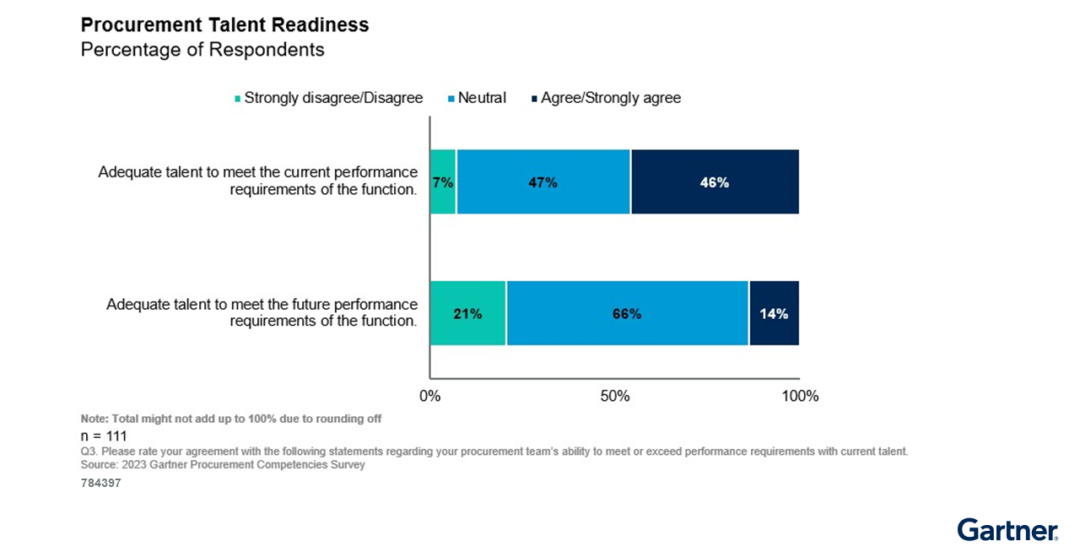Gartner: Procurement leaders say their talent is not ready to meet future needs
CPOs are worried about the future and having sufficient talent to meet transformative goals based around technology

Only 14% of procurement leaders express confidence in their talent’s ability to meet the future needs of the function, according to a survey by consulting firm Gartner, Inc.
The survey of 111 procurement leaders in June 2023 showed a bifurcation between procurement leaders’ assessments of current and future talent needs in the function. While 46% of respondents are confident in their current talent needs, only 14% agree they have adequate talent to meet future requirements. The number of respondents who strongly disagreed with the statement that they have adequate talent tripled from current levels when asked about their future requirements.
“Procurement leaders are generally confident in the current state of their talent and the ability to meet their near-term objectives,” Fareen Mehrzai, senior director analyst in Gartner’s Supply Chain Practice, said in a release. “However, our data shows that chief procurement officers (CPOs) are worried about the future and having sufficient talent to meet transformative goals based around technology, as well as the ability to serve as a strategic advisor to the business.”
Driving the lack of confidence in future talent readiness is a shift in the key competencies CPOs need to help drive objectives associated with procurement transformation. Sixty-nine percent of respondents said business acumen had gained importance in the last 12 months, while 68% said technology and data skills had increased in importance. Only 26% said “traditional procurement competencies” had gained importance in the same period.
“Procurement leaders are aware that the competencies required to drive transformation are different from traditional procurement skills, and that there are significant gaps between their current and future needs for the most important competencies,” said Mehrzai. “Ninety-six percent of respondents reported at least a small gap in their needs for technology and data skills, while 86% reported the same when it came to business acumen.”
Related Articles
Copyright ©2024. All Rights ReservedDesign, CMS, Hosting & Web Development :: ePublishing